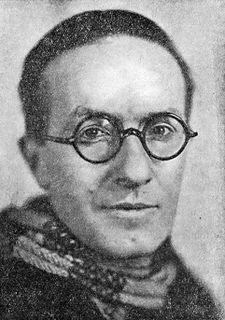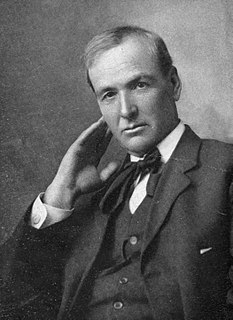A Quote by Allen W. Wood
What is central to morality is rational self-constraint (acting from duty), in cease where there is no other incentive to do your duty except that the moral law commands it.
Related Quotes
Kant does not think there is anything wrong with being beneficent from sympathy. He thinks we have a duty to cultivate sympathetic feelings by participating in the situations of others and acquiring an understanding of them. He thinks we also have a duty to make ourselves into the kind of person for whom the recognition that something is our duty would be a sufficient incentive to do it (if no other incentives were available to us). That's what he means by "the duty to act from the motive of duty".
The teaching of the Sermon on the Mount is not--Do your duty, but--Do what is not your duty. It is not your duty to go the second mile, to turn the other cheek, but Jesus says if we are His disciples we shall always do these things. There will be no spirit of--"Oh, well, I cannot do any more, I have been so misrepresented and misunderstood". . . Never look for right in the other man, but never cease to be right yourself. We are always looking for justice; the teaching of the Sermon on the Mount is--Never look for justice, but never cease to live it.
Every man and woman in society has one big duty. That is, to take care of his or her own self. This is a social duty. For, fortunately, the matter stands so that the duty of making the best of one's self individually is not a separate thing from the duty of filling one's place in society, but the two are one, and the latter is accomplished when the former is done
The relations between parents and children are certainly not only those of constraint. There is spontaneous mutual affection, which from the first prompts the child to acts of generosity and even of self-sacrifice, to very touching demonstrations which are in no way prescribed. And here no doubt is the starting point for that morality of good which we shall see developing alongside of the morality of right or duty, and which in some persons completely replaces it.
To be beneficent when we can is a duty; and besides this, there are many minds so sympathetically constituted that, without any other motive of vanity or self-interest, they find a pleasure in spreading joy around them, and can take delight in the satisfaction of others so far as it is their own work. But I maintain that in such a case an action of this kind, however proper, however amiable it may be, has nevertheless no true moral worth, but is on a level with other inclinations. . . . For the maxim lacks the moral import, namely, that such actions be done from duty, not from inclination.
There has been no clearer principle of English or American constitutional law than that, in criminal cases, it is not only the power and duty of juries to judge what are the facts, what is the law, and what is the moral intent of the accused; but that it is also their power, and their primary and paramount duty, to judge the justice of the law, and to hold all laws invalid, that are, in their opinion, unjust or oppressive, and find all persons guiltless in violating, or resisting the execution of, such laws.
HELMER; But this is disgraceful. Is this the way you neglect your most sacred duties? NORA: What do you consider is my most sacred duty? HELMER: Do I have to tell you that? Isn't it your duty to your husband and children? NORA:I have another duty, just as sacred. HELMER: You can't have. What duty do you mean? NORA: My duty to myself.


































